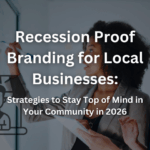What exactly is Social Proof?
Wikipedia defines it as: “psychological phenomenon where people assume the actions of others in an attempt to reflect correct behavior for a given situation.”
But if you wanted to make it simple, it could be defined as: consensus. Which means “general agreement among people about something”.
It is what people agree should or shouldn’t be done.
When a person is in a position to make a decision (such as what to buy or do) he may or may not take Social Proof into account. It depends how self-assured, and self-confident they are in their own thought process and conclusions. This factor of self-confidence aside, social proof is present in many decisions people make, therefore it is important to know about it, and how to use it in your business.
Why Social Proof?
If people are not completely self-assured, they will look to the actions and behaviors of others to determine their own decisions. If someone knows what the majority of other people are doing then they will make the assumption that they should do the same, because it is acceptable and is safe. The risk is low because many people are doing it, so the chances of it being bad/dangerous are low.
You see this all the time in your day to day. If you need to find a new tax-preparer, you might ask a friend or family member who they use, and make the decision of hiring them solely because someone you know uses them. Another example, a person is getting into a new hobby, fishing, or archery, or whatever. Since he is new to this activity, he does not trust his own judgement, so he wants to know what other people in this group are doing, buying, using, not using. If he’s shopping for his gear, he would want to know what the pros are using, or what the pros started out with, when they were beginners.
Using Social Proof for the Web
One has to remember that his business is catering to a specific audience. For a bookstore their audience is ‘readers’, for a sporting goods store their audience are ‘sports enthusiasts’, for a landscaping company their audience could be ‘home owners who like home improvement’.
Once you know what the audience is, you can speak to them directly on your website. Like this:
“50% of book readers who visit our site have read this book [insert book title here]”
“33% of visitors to our site found this page the most helpful [insert squeeze page here]”
“100% of people who use our services don’t regret it”
Or, more specifically (on a landing page, etc): “55% of people who read this page downloaded our free e-book”
Obviously some research and surveying would have to be conducted in order to find out this data. But, the above information and text ads another layer of factualness to your brand. It adds a reinforcing element, and makes you and your brand more real to the consumer.
A key point to remember in implementing social proof for your website is that people are interested to know what others have done (others who are similar to them… others in the same audience). A home improvement DIY person would be interested to know specifically what other home improvement DIY people are doing, as opposed to the broad generality of ‘what other people are doing’. Being specific helps build a stronger connection and more credence to your claims.






